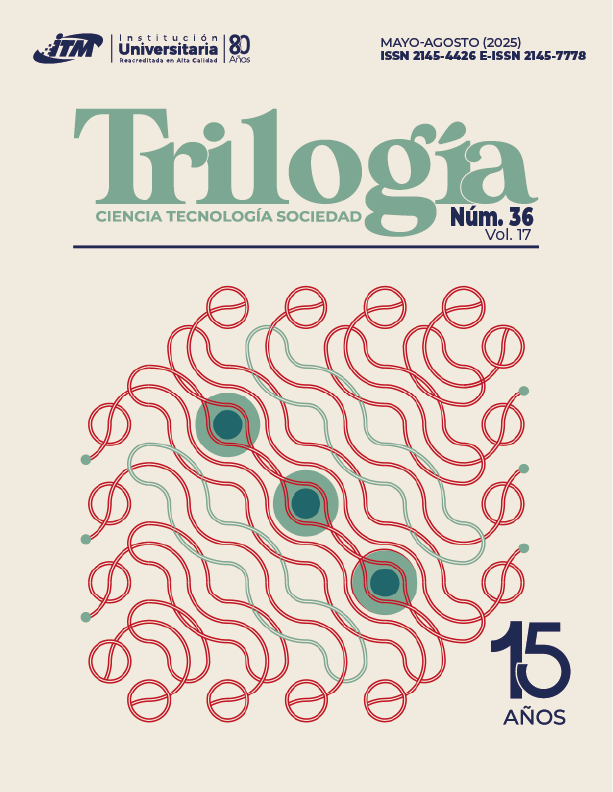Inteligencia artificial y futuros deseables: visiones de investigadores científicos en México
Resumen
Debido a la falta de políticas públicas, regulaciones y estrategia nacional, en México la inteligencia artificial se encuentra en una fase de flexibilidad interpretativa en la que cobran importancia las visiones de futuro colectivamente modeladas para su estabilización. Este estudio identifica las visiones de futuro de investigadores en inteligencia artificial afiliados a dos centros mexicanos principales. Se adoptó un enfoque cualitativo, basado en 25 entrevistas semiestructuradas y sustentado en el carácter discursivo de las motivaciones que orientan la práctica científica. Los hallazgos destacan que las visiones de futuro varían según el abordaje básico o aplicado del conocimiento, y de acuerdo con la institución de pertenencia. El artículo contribuye a mostrar que, en México, las visiones de futuro sobre la inteligencia artificial se configuran como estrategias de nicho orientadas a la utilidad social, en contraste con los imaginarios corporativos globales centrados en la disrupción y la productividad. Asimismo, se evidencia que la visión de la inteligencia artificial como herramienta de desarrollo tecnocientífico enfrenta limitaciones por falta de una estrategia coordinada y de políticas públicas. Las conclusiones detallan acciones de políticas científicas que apunten a fortalecer las relaciones entre actores, así como el apoyo al desarrollo de soluciones de bajo costo computacional.
Referencias bibliográficas
Bareis, J., y Katzenbach, C. (2022). Talking AI into Being: The Narratives and Imaginaries of National AI Strategies and Their Performative Politics. Science, Technology & Human Values, 47(5), 855-881. https://doi.org/10.1177/01622439211030007
Bommasani, R., Hudson, D. A., Adeli, E., Altman, R., Arora, S., Arx, S. von, Bernstein, M. S., Bohg, J., Bosselut, A., Brunskill, E., Brynjolfsson, E., Buch, S., Card, D., Castellon, R., Chatterji, N., Chen, A., Creel, K., Davis, J. Q., Demszky, D., … Liang, P. (2022). On the Opportunities and Risks of Foundation Models. Center for Research on Foundation Models (CRFM), Stanford Institute for Human-Centered Artificial Intelligence (HAI), y Stanford University. https://doi.org/10.48550/arXiv.2108.07258
Bortz, G., Gázquez, A., y Santos, G. M. (2022). Conocimientos, utilidad social y políticas públicas para la inclusión y sustentabilidad: Redes Territoriales Participativas como nueva forma de gobernanza. Redes. Revista de Estudios Sociales de la Ciencia y la Tecnología, 28(54), 1-53. https://doi.org/10.48160/18517072re54.143
Chavez, H., y Vizuete-Sandoval, D. (2025). Widening the divide, reloading dependency: The political economy of data and AI capability building in Latin America. Globalizations, 1-23. https://doi.org/10.1080/14747731.2024.2441625
Elish, M., y boyd, d. (2018). Situating methods in the magic of Big Data and AI. Communication Monographs, 85(1), 57-80. https://doi.org/10.1080/03637751.2017.1375130
Hager, G. D., Drobnis, A., Fang, F., Ghani, R., Greenwald, A., Lyons, T., Parkes, D. C., Schultz, J., Saria, S., Smith, S. F., y Tambe, M. (2017). Artificial Intelligence for Social Good. Computing Community Consortium. https://doi.org/10.48550/arXiv.1901.05406
Hilgartner, S. (2015). Capturing the Imaginary: Vanguards, visions, and the synthetic biology revolution. En S. Hilgartner, C. Miller, y R. Hagendijk (eds.), Science and Democracy: Making Knowledge and Making Power in the Biosciences and Beyond (pp. 33-55). Routledge.
Jasanoff, S. (2015). Future Imperfect: Science, Technology, and the Imaginations of Modernity. En S. Jasanoff, y S. H. Kim (eds.), Dreamscapes of Modernity. Sociotechnical Imaginaries and the Fabrication of Power (pp. 1-30). Chicago University Press.
Jasanoff, S., y Kim, S. H. (2009). Containing the Atom: Sociotechnical Imaginaries and Nuclear Power in the United States and South Korea. Minerva, 47(2), 119-146. https://doi.org/10.1007/s11024-009-9124-4
Kaplan, A., y Haenlein, M. (2019). Siri, Siri, in my hand: Who’s the fairest in the land? On the interpretations, illustrations, and implications of artificial intelligence. Business Horizons, 62(1), 15-25. https://doi.org/10.1016/j.bushor.2018.08.004
Kreimer, P. (2023). Techno-Scientific Promises, Disciplinary Fields, and Social Issues in Peripheral Contexts. Science as Culture, 32(1), 83-108. https://doi.org/10.1080/09505431.2022.2101918
Nayak, B. S., y Walton, N. (2024). Political Economy of Artificial Intelligence: Critical Reflections on Big Data Market, Economic Development and Data Society. Palgrave Macmillan. https://doi.org/10.1007/978-3-031-62308-0
Nowotny, H., Scott, P., y Gibbons, M. (2003). “Mode 2” Revisited: The New Production of Knowledge. Minerva, 41(3), 179-194. https://www.jstor.org/stable/41821245
Rampin, R. (2018). Taguette [software]. https://gitlab.com/remram44/taguette
Red Iberoamericana de Indicadores de Ciencia y Tecnología. (2023). El estado de la ciencia. Principales Indicadores de Ciencia y Tecnología Iberoamericanos / Interamericanos 2023. RICyT, Organización de Estados Iberoamericanos (OEI), y Unesco. https://www.ricyt.org/wp-content/uploads/2023/12/EL-ESTADO-DE-LA-CIENCIA-2023.pdf
Richter, V., Katzenbach, C., y Schäfer, M. (2023). Imaginaries of Artificial Intelligence. En S. Lindgren (ed.), Critical Studies of Artificial Intelligence (pp. 209-223). Edward Elgar.
Schot, J., y Geels, F. W. (2007). Niches in evolutionary theories of technical change. Journal of Evolutionary Economics, 17(5), 605-622. https://doi.org/10.1007/s00191-007-0057-5
Sued, G. E. (2024). La producción científica mexicana en Inteligencia Artificial: Un análisis bibliométrico. Investigación Bibliotecológica: archivonomía, bibliotecología e información, 38(100), 87-105. https://doi.org/10.22201/iibi.24488321xe.2024.100.58893
Wang, W., y Downey, J. (2025). Mapping the sociotechnical imaginaries of generative AI in UK, US, Chinese and Indian newspapers. Public Understanding of Science, 1-19. https://doi.org/10.1177/09636625251328518
Weber, J., y Prietl, B. (2021). AI in the age of technoscience. On the rise of data driven AI and its episteme ontological foundations. En A. Elliott (ed.), The Routledge Social Science Handbook of Artificial Intelligence (pp. 58-73). Routledge.
Descargas
Derechos de autor 2025 Gabriela Elisa Sued

Esta obra está bajo una licencia internacional Creative Commons Atribución-NoComercial-CompartirIgual 4.0.

| Estadísticas de artículo | |
|---|---|
| Vistas de resúmenes | |
| Vistas de PDF | |
| Descargas de PDF | |
| Vistas de HTML | |
| Otras vistas | |
Datos de los fondos
-
Consejo Nacional de Humanidades, Ciencias y Tecnologías
Números de la subvención Proyecto Estancias Postdoctorales 4500990







